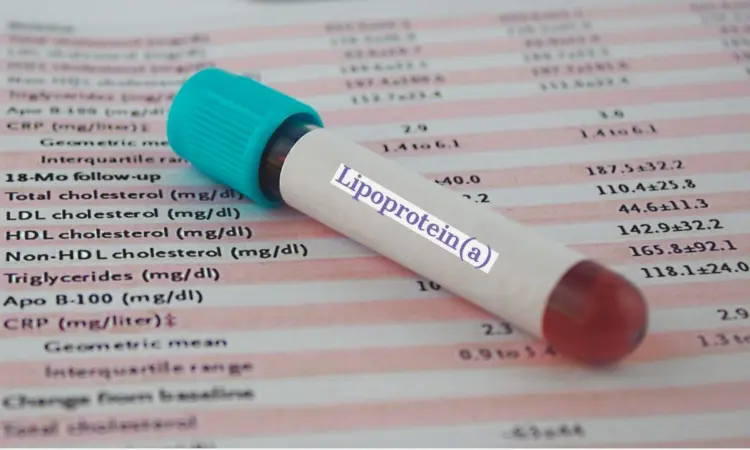- Home
- Medical news & Guidelines
- Anesthesiology
- Cardiology and CTVS
- Critical Care
- Dentistry
- Dermatology
- Diabetes and Endocrinology
- ENT
- Gastroenterology
- Medicine
- Nephrology
- Neurology
- Obstretics-Gynaecology
- Oncology
- Ophthalmology
- Orthopaedics
- Pediatrics-Neonatology
- Psychiatry
- Pulmonology
- Radiology
- Surgery
- Urology
- Laboratory Medicine
- Diet
- Nursing
- Paramedical
- Physiotherapy
- Health news
- Fact Check
- Bone Health Fact Check
- Brain Health Fact Check
- Cancer Related Fact Check
- Child Care Fact Check
- Dental and oral health fact check
- Diabetes and metabolic health fact check
- Diet and Nutrition Fact Check
- Eye and ENT Care Fact Check
- Fitness fact check
- Gut health fact check
- Heart health fact check
- Kidney health fact check
- Medical education fact check
- Men's health fact check
- Respiratory fact check
- Skin and hair care fact check
- Vaccine and Immunization fact check
- Women's health fact check
- AYUSH
- State News
- Andaman and Nicobar Islands
- Andhra Pradesh
- Arunachal Pradesh
- Assam
- Bihar
- Chandigarh
- Chattisgarh
- Dadra and Nagar Haveli
- Daman and Diu
- Delhi
- Goa
- Gujarat
- Haryana
- Himachal Pradesh
- Jammu & Kashmir
- Jharkhand
- Karnataka
- Kerala
- Ladakh
- Lakshadweep
- Madhya Pradesh
- Maharashtra
- Manipur
- Meghalaya
- Mizoram
- Nagaland
- Odisha
- Puducherry
- Punjab
- Rajasthan
- Sikkim
- Tamil Nadu
- Telangana
- Tripura
- Uttar Pradesh
- Uttrakhand
- West Bengal
- Medical Education
- Industry
Olpasiran Shows Prolonged Lipoprotein(a) Reduction: Nearly 50% Drop Maintained for Up to Year After Treatment, Study

USA: In a recent follow-up study of the OCEAN(a)-DOSE clinical trial, new data has revealed the extended benefits of Olpasiran, a promising siRNA therapeutic designed to lower lipoprotein(a) [Lp(a)] levels. This extension period provides significant insights into the drug’s prolonged efficacy and potential for long-term cardiovascular risk management.
The study, published in the Journal of the American College of Cardiology, revealed that participants who received doses of 75 mg or more every 12 weeks maintained a reduction in Lp(a) levels of approximately 40% to 50% nearly a year after their final dose.
Olpasiran, a small interfering RNA (siRNA) medication, has garnered attention for its ability to target and reduce Lp(a), a known risk factor for cardiovascular diseases. It blocks the production of Lp(a) by inhibiting the translation of apolipoprotein(a) mRNA. In Phase 2 trials, higher doses of Olpasiran administered every 12 weeks reduced circulating Lp(a) levels by over 95%.
Against the above background, Michelle L. O’Donoghue, Brigham and Women’s Hospital and Harvard Medical School, Boston, Massachusetts, USA, and colleagues aimed to evaluate the timing of return of Lp(a) to baseline after discontinuation of olpasiran, and longer-term safety.
The OCEAN(a)-DOSE (Olpasiran Trials of Cardiovascular Events And LipoproteiN[a] Reduction–DOSE Finding Study) was a Phase 2 trial designed to explore different dosing regimens. It involved 281 participants with atherosclerotic cardiovascular disease and Lp(a) levels exceeding 150 nmol/L.
Participants were randomly assigned to receive one of four Olpasiran doses (10 mg, 75 mg, 225 mg every 12 weeks, or an exploratory 225 mg every 24 weeks) or a placebo. The final dose of Olpasiran was given at week 36, with an additional off-treatment follow-up period extending for at least 24 weeks beyond week 48.
The following were the key findings of the study:
- Two hundred seventy-six participants entered the off-treatment follow-up period. The median study exposure (treatment combined with off-treatment phases) was 86 weeks (Q1-Q3: 79-99 weeks).
- For the 75 mg Q12W dose, the off-treatment placebo-adjusted mean percent change from baseline in Lp(a) was −76.2%, −53.0%, −44.0%, and −27.9% at 60, 72, 84, and 96 weeks, respectively.
- The respective off-treatment changes in Lp(a) for the 225 mg Q12W dose were −84.4%, −61.6%, −52.2%, and −36.4%.
- During the extension follow-up phase, no new safety concerns were identified.
Jared Alexander Spitz from Inova Schar Heart and Vascular in Fairfax, Virginia, USA, commented in his editorial that while the results are promising, no new safety issues emerged during the study. He emphasized that further research, including Phase 3 trials, must validate these findings and explore their broader clinical implications, particularly across diverse patient populations.
"Olpasiran's RNA interference mechanism significantly reduces Lp(a) levels, with its effects remaining robust for several months after treatment cessation. Currently, the drug is demonstrating a favorable safety and tolerance profile. The forthcoming Phase 3 trial results will be crucial in establishing whether lowering Lp(a) with olpasiran provides tangible cardiovascular benefits," the study authors concluded.
Reference:
O'Donoghue ML, Rosenson RS, López JAG, Lepor NE, Baum SJ, Stout E, Gaudet D, Knusel B, Kuder JF, Murphy SA, Wang H, Wu Y, Shah T, Wang J, Wilmanski T, Sohn W, Kassahun H, Sabatine MS; OCEAN(a)-DOSE Trial Investigators. The Off-Treatment Effects of Olpasiran on Lipoprotein(a) Lowering: OCEAN(a)-DOSE Extension Period Results. J Am Coll Cardiol. 2024 Aug 27;84(9):790-797. doi: 10.1016/j.jacc.2024.05.058. PMID: 39168564.
Dr Kamal Kant Kohli-MBBS, DTCD- a chest specialist with more than 30 years of practice and a flair for writing clinical articles, Dr Kamal Kant Kohli joined Medical Dialogues as a Chief Editor of Medical News. Besides writing articles, as an editor, he proofreads and verifies all the medical content published on Medical Dialogues including those coming from journals, studies,medical conferences,guidelines etc. Email: drkohli@medicaldialogues.in. Contact no. 011-43720751


